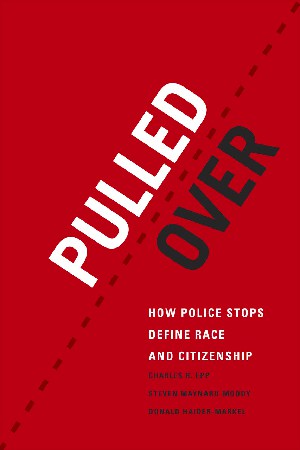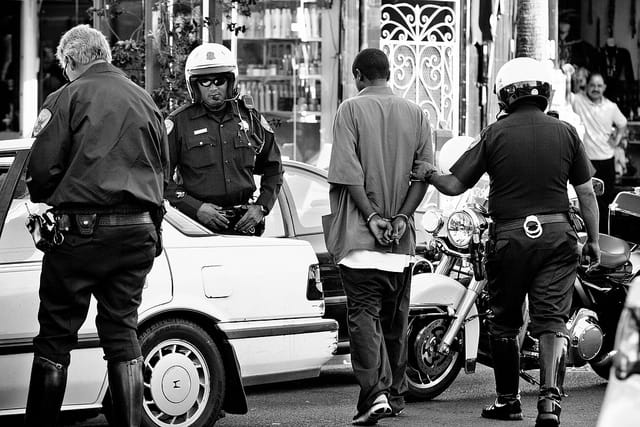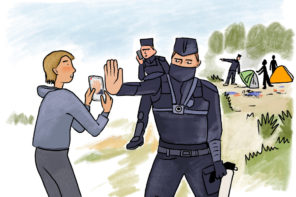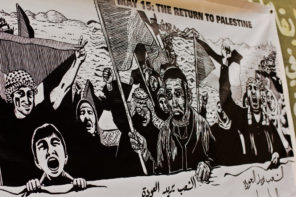On 22 March 2016, the Belgian city of Brussels suffered three calculated and co-ordinated terrorist attacks in the name of the so-called Islamic State. As with the Paris attacks before it, this gave occasion to rekindled fear, horror, and outrage throughout Europe. There was renewed persistence for stricter border controls, and a call for heightened national security against the socially imagined ‘other’. This rhetoric was also fuelled within the United States where, in the midst of Presidential Election campaigns, one leading candidate had already vowed to ban all Muslims from entering the United States. His opponent for the Republican nomination (no longer in the running) called upon law enforcement officials to patrol Muslim neighbourhoods vigilantly, in the wake of this incident. These comments were met with indignation from many, including police authorities, evidenced when the NYPD Commissioner took offence at what he deemed to be the unfounded denigration of vast population groups. The Commissioner’s reaction, however, was undermined by one overlooked (yet significant) detail: that counter-radicalisation policing was already in place in the United States (Akbar 2013:813). In a similar vein, frequent and disproportionate monitoring of broader minority groups (without conflating issues of race, ethnicity, and faith) has arguably become a common expedient of government control. Perhaps no form of this is as recurrent, or as commonplace, as the investigatory stop.

The belief that racial discrimination emerges mainly in individual mistreatment of the driver has led to increased emphasis on police courteousness within the context of an investigatory stop, falsely assuming this to be the main criteria by which a stop is deemed to be unfair and discriminatory. This places the onus of responsibility for discrimination upon individual police officers, rather than acknowledging the inherent racism which is firmly embedded within this widely touted and deeply damaging practice. Officers are actively encouraged to be proactive in their efforts to fight crime, thus prompting them to act on internalised (and largely subconscious) triggers. Pulled Over argues that race has become internalised as one such trigger, taken largely as a cue for heightened police suspicion (more so than other factors such as gender and social class). This in turn helps to define the social meaning of race, and what it means to be black. Black people’s overt familiarity with police stops has sharpened their knowledge of cues on fairness, enabling them to question the legitimacy of a stop. This may in turn prompt officers to take their investigations further – a common experience amongst black drivers, albeit not solely attributable to the extent to which they challenge police officers.
In urging officers to deem anything ‘out of the ordinary’ as potentially criminal and worthy of inspection, investigatory stops communicate to black people that they are ‘out of place’, thus shaping their own sense of social positioning, and diminishing their worth as full and equal citizens.
Black people who are purposely stopped in wealthy suburban areas are implicitly treated as manifestations of social pollution, in terms of Mary Douglas’ notion of dirt as “matter out of place” (1966: 44). They come to learn that they are lacking in social value, marginalised by means of a socially constructed order which posits them as embodied forms of social and moral contamination. They learn that this very process subjects them to intrusive and arbitrary control, which in turn restricts their freedom of movement in getting them to avoid certain areas in order to evade police harassment.
This practice has deep and far reaching effects beyond the intimidation and degradation of individual black drivers. Neighbourhoods become socially segregated, and the idea of black people as criminal and violent is reinforced through the process of their subjection to ongoing and disproportionate surveillance. Not only does the practice frame an understanding of black people as criminals, but it simultaneously acquires social meaning and makes sense to bystanders who witness black people being stopped on the side of the road at significantly higher rates. Existing fear and prejudice is thus granted legitimacy, perpetuating itself and fueling the social construction of race, thus shaping what it means to be black.
These encounters carry negative repercussions which persist and endure until long after the stop has ended. Epp, Maynard-Moody & Haider-Markel go on to illustrate how the practice of the investigatory stop nurtures profound distrust in the police. This tangible sentiment lies in stark contrast to the responsibility of police officers to keep the peace, and to protect people’s fundamental freedoms within a democratic society. The fulfillment of this duty in itself is reliant on the existence of mutual respect, and the cultivation of trust, respect, and collaboration between citizens and law enforcement officers. The investigatory stop, on the contrary, is predicated on an intensely unequal power situation, the outcomes of which are hardly conducive towards securing co-operation in fighting crime. The authors demonstrate how the arbitrariness of the investigatory stop tends to condition an expectation of unequal treatment, eroding people’s trust and giving rise to negative consequences which far outweigh any possible benefits in the long run.

Photo by Thomas Hawk (flickr, CC-BY-NC 2.0)
Earlier, attention was drawn to the recently proposed surveillance of Muslim neighbourhoods, and to the fact that counter-radicalisation policing is already in place in the United States (despite it being a campaign promise). The destructive processes at the heart of the investigatory stop are similarly applicable here, as a practice which goes beyond racial discrimination. Indeed, Epp, Maynard-Moody & Haider-Markel extend their critical analysis of the investigatory stop beyond race, also debating the recent practice of conflating migrant status and ethnicity. They indicate that police stops to check for immigration documents are ethnically (and not just racially) framed, leading to a disproportionate number of the Hispanic or Latino population being stopped on a pretext. Whilst officers hope to pin down those who are in the country illegally, the vast majority of individuals who will end up being confronted in these intrusive and arbitrary encounters are US citizens and/or legal residents. This communicates one thing to the individual who is stopped – that they appear to be less than a full and respected member of society, and they have no rightful claim to treatment as such.
The authors provide overwhelming evidence to show that the investigatory stop is a largely failed practice, running contrary to the very aims which it sets out to achieve. By alienating the very communities which they are meant to serve, investigatory stops have shown their existence (in their present form) to be not only futile, but profoundly damaging in both the short and long term. The book ends with concrete recommendations, which may begin to rectify the harm which has been brought about through these institutionally-sanctioned acts of discrimination. These include stopping drivers only in the face of clear evidence of criminal behaviour, rather than on the basis of a hunch. Building on this, they add that official guidelines should govern the decision of a police officer to make a stop, requiring officers to provide clear, authorised, and articulated reasons in the process.
Perhaps in the wake of such measures, it will be possible to take a step towards racial justice. Until then, this problem policy shall remain a stain in the social fabric – depleting trust in the process of trying to build it, and attacking human dignity whilst claiming to protect the very same.
References
Akbar, A. (2013) Policing “Radicalization”, 3 U.C. Irvine L. Rev. 809
Douglas, M. (1966) Purity and Danger. London: Routledge
Epp, Charles R., Maynard-Moody, Steven and Haider-Markel, Donald. 2014. Pulled Over: How Police Stops Define Race and Citizenship. Chicago: University of Chicago Press. 272 pp. Pb: $25.00. ISBN: 9780226113999
**********
Featured image by IceBone (flickr, CC BY-NC-ND 2.0)







